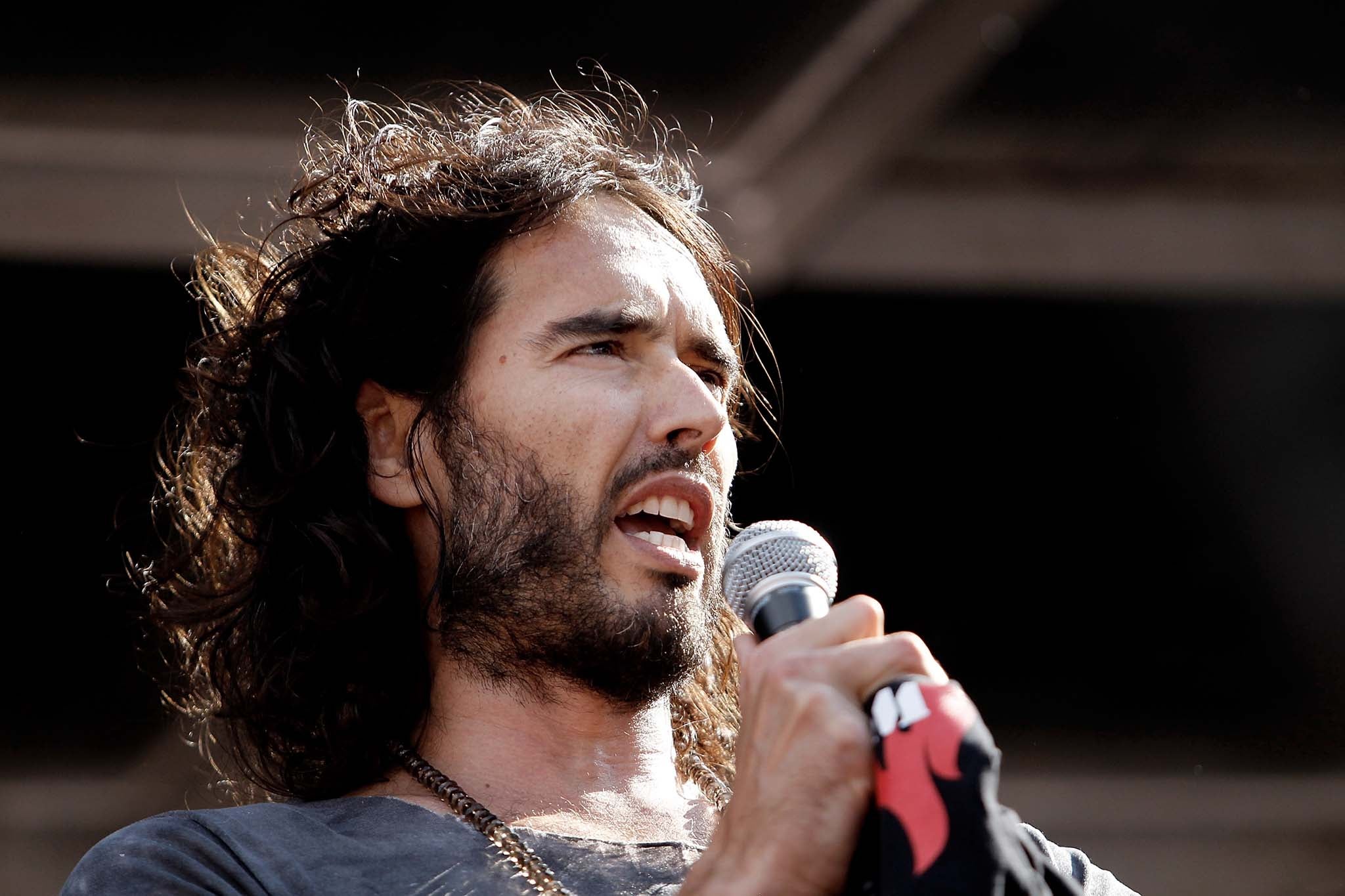Russell Brand's Revolution - book review: Witty banalities aside, the comic has an authentic voice
The Independent's Steve Richards suggests that Ed Miliband might like to make Brand a Minister if he gets into office

Your support helps us to tell the story
From reproductive rights to climate change to Big Tech, The Independent is on the ground when the story is developing. Whether it's investigating the financials of Elon Musk's pro-Trump PAC or producing our latest documentary, 'The A Word', which shines a light on the American women fighting for reproductive rights, we know how important it is to parse out the facts from the messaging.
At such a critical moment in US history, we need reporters on the ground. Your donation allows us to keep sending journalists to speak to both sides of the story.
The Independent is trusted by Americans across the entire political spectrum. And unlike many other quality news outlets, we choose not to lock Americans out of our reporting and analysis with paywalls. We believe quality journalism should be available to everyone, paid for by those who can afford it.
Your support makes all the difference.How typical of England to produce a revolutionary who offers no route map towards a revolution. How frustrating, also, when Russell Brand has such a compelling and authentic voice, a quality that most prominent politicians ache for as they make their neurotically contrived public appearances.
Brand writes and speaks with verve, words flowing effortlessly and musically. The contrast with the tame wooden prose of elected politicians is marked. Even as he thanks others for their help for his book Brand is animated, “I have to be a fair, upstanding fella, not a gluttonous narcissist gobbling up other people’s credit like, I dunno, Wonga”. He makes his point with more wit than those politicians warning formulaically about, say, the “cost of living crisis”.
Brand is also refreshingly distinctive in his analysis of what is wrong about the way modern Britain is run or not run, as the state shrinks and the lightly regulated markets make hay. Nearly all columnists in the London based newspapers are unquestioning advocates of old outdated right wing orthodoxies, working on tired assumptions about the purity of markets and the futility of investment in public services. Huge swathes of the electorate are ignored in the media as lofty Blairites debate amicably with all knowing Cameroon commentators about their narrow vision of economic and social liberalism. Coming up from the outside is a voice that cuts through the stifling media consensus, highlighting the powerlessness of most voters in the face of rigged markets and inequality.
But while Brand is perceptive about what is wrong he predictably lapses into vague banalities when suggesting what needs to be done, the difficult bit. “We can run our own lives and our own communities”, he writes. Can we? How? At times England’s revolutionary sounds like an ardent supporter of David Cameron’s ‘big society’, even if Brand is smart enough to see through that superficial attempt to re-heat Thatcherism. Brand attacks corporations and the regulations that allow them to dominate us, but it is the despised politicians that grapple with new UK regulations for banks that make their deals in a global economy. Brand does not trouble himself with such specifics. He moves on to other parts of his vague revolution. “De-centralisation” and spirituality are part of his alternative. Again politicians agonise over how to de-centralise effectively. Brand is not interested, preferring instead to prove the merits of meditation as a solution to his elegantly expressed evocation of the UK’s many dire problems.
Inadvertently Brand has written a defence of politics while raging fashionably against politicians. His omits the difficult bits that elected politicians cannot avoid. Brand can avoid policy prescriptions because, like many celebrities who espouse political views, he can get away with uttering witty banalities that avoid detail. In this respect he is part of a disturbing phenomenon, the worship of unaccountable comedians who are not especially funny and who are limited in their perceptions. There was a time when audiences would turn up to hear political orators. Now they pay homage to the celebrities as they express their disdain for politicians.
Ed Miliband would agree with quite a lot of Brand’s analysis of what is wrong while despairing of the comedian’s view that no one should bother to vote. If he becomes Prime Minister Miliband should make Brand minister without portfolio, a figure to keep other cautious ministers on their toes with his revolutionary fervour, even though Brand would resign after a few months as politicians faced dilemmas and constraints that would not concern or interest him. We await a revolutionary who plots what should happen as well as what is wrong.
Steve Richards will present Rock N Roll Politics at Kings Place, London on Mon 24 November
Join our commenting forum
Join thought-provoking conversations, follow other Independent readers and see their replies
Comments